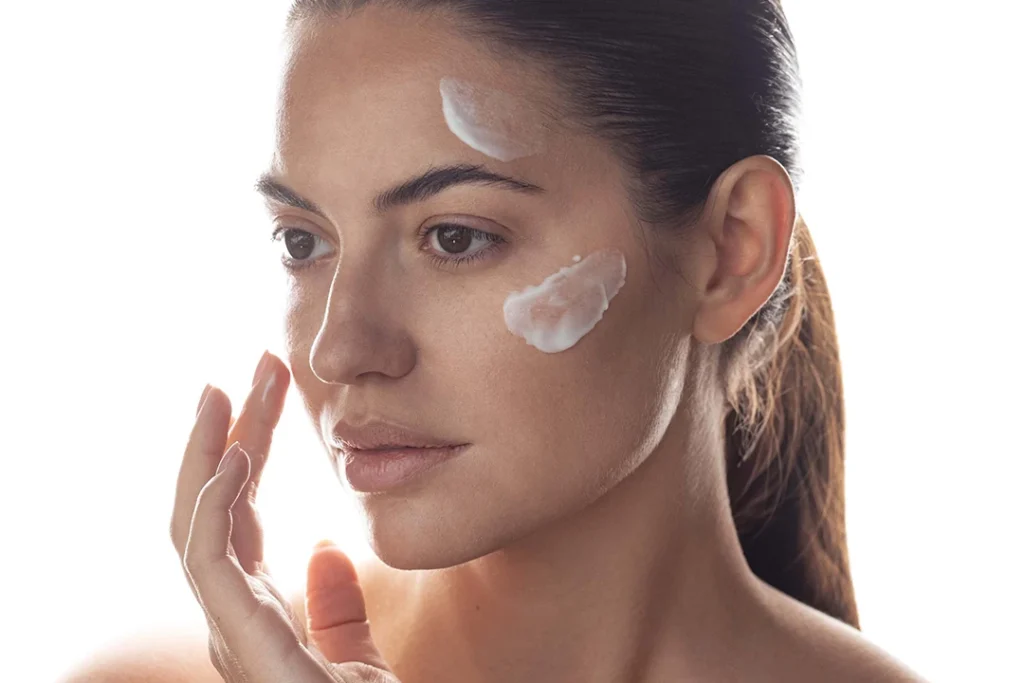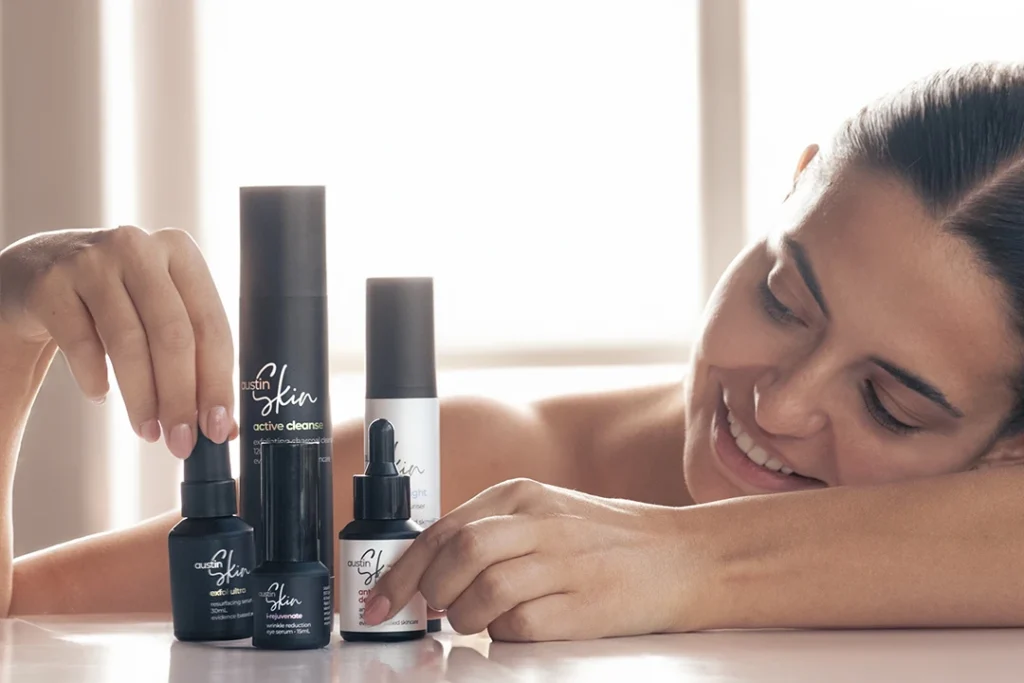In this article, you’ll find out more about the science behind the skin barrier, explore how to diagnose dysfunction, and load up on the facts you need to keep your skin healthy throughout the winter.
What is the Skin Barrier?
The stratum corneum, often referred to as the skin barrier, is the outermost layer of the epidermis, serving as our body’s frontline defence against external threats. Composed mainly of dead skin cells (corneocytes) embedded in a lipid matrix, your skin barrier is aptly named. It acts as a protective shield, preventing water loss and guarding against harmful microorganisms, chemicals, and UV radiation.
This barrier function is crucial in maintaining skin hydration and integrity. When the stratum corneum is healthy and intact, the skin appears smooth, soft, and resilient. Disruptions in its structure can lead to a host of unwelcome problems. Understanding this and nurturing the stratum corneum through proper skincare routines are key to promoting overall skin beauty and maintaining its healthy, natural balance.
How do you know if your balance is out of whack? Keep reading!
4 Ways Skin Barrier Health Promotes Luminous Complexions
A healthy skin barrier performs several crucial functions:
Protects against external aggressors: It shields your skin from harmful environmental factors like pollutants, allergens, and irritants.
Maintains hydration: It prevents excessive water loss, keeping your skin plump and supple.
Regulates skin temperature: It plays a role in regulating your body temperature.
Promotes healthy skin microbiome: It fosters a balanced skin microbiome, which is essential for overall skin health.
Signs and Symptoms of Skin Barrier Dysfunction
A compromised skin barrier can manifest in several ways. These are the common, telltale signs to watch out for, especially during the winter months:
Dryness: A feeling of tightness and roughness results when too much moisture is lost through the epidermis. (This is known as TEWL, or transepidermal water loss.)
Sensitivity: When the skin barrier breaks down, normally resilient skin may become more reactive. That makes it more prone to irritation, redness, stinging, and sensitivity.
Increased breakouts: In addition to preventing water and electrolyte loss, the stratum corneum works as a permeability barrier. It helps prevents the entry of harmful irritants, allergens, and microorganisms into the skin.
Flaking and scaling: A disrupted stratum corneum leads to increased dryness, causing corneocytes (dead skin cells) to clump together. This results in invisible flaking and scaling.
These problems are your skin’s way of crying out for help. Don’t ignore them … look for the reasons behind their appearance.
Skin Barrier Enemies: Why Is this Happening to Me?
Various factors can disrupt the delicate balance of the skin barrier, leading to dysfunction. Cold, dry winter air, harsh winds, and low humidity can all contribute to increased water loss and dehydration. “Be aware of your environment and treat your skin accordingly,” recommends Dr Austin.
At the same time, certain skin conditions like eczema, psoriasis, and rosacea can weaken the skin barrier. “Problems that go beyond sun exposure can be hard to self-diagnose,” Dr Austin warns. “For this reason, a skin professional is the best way to find out more about your complexion issues.”
Harsh skincare products: Products containing strong detergents, alcohol, or fragrances can strip away natural oils and disrupt the skin’s delicate balance. “The products and treatments we offer at Austin Clinic and upstairs at The Sanctuary have been carefully formulated to promote skin health,” reports Dr Austin.
Over-exfoliation: “Excessive exfoliation can remove healthy skin cells and damage the barrier’s integrity,” says Dr Austin. “This is not a case where more is better.”
Winterproofing Your Skin Barrier
Regenerative practices and products that restore the skin are your allies when the temperature dips. Commit to them to protect and strengthen your skin barrier throughout the winter:
Gentle cleansing: Opt for fragrance-free, non-comedogenic cleansers that won’t strip away natural oils.
Hydration is key: Use a rich moisturiser formulated with ceramides and hyaluronic acid to replenish moisture and lock it in.
Humectants for the win: Look for humectant ingredients like glycerine and hyaluronic acid, which attract and retain moisture in the skin.
Emollients for added protection: Emollients like shea butter and squalane fill in the gaps between skin cells, creating a smoother, more resilient barrier.
Exfoliate, but don’t overdo it: Limit exfoliation with a scrub or mask to 1-2 times per week and use gentle exfoliating products.
Lukewarm showers: Avoid hot showers, which can strip away natural oils. Opt for lukewarm showers using a gentle face and body cleanser then pat your skin dry instead of rubbing.
Humidify your environment: Using a humidifier can add moisture to the air, especially helpful in dry winter climates.
Sunscreen all year round: Don’t forget to wear sunscreen every day, even on cloudy days. The sun’s UV rays can damage the skin barrier year round.
Protect Your Skin Barrier
By understanding the importance of the skin barrier and the factors that can compromise it, you can take proactive steps to keep your skin healthy and resilient throughout the winter. Austin Skin is ready to help guide you with tips, treatments, and products that you can incorporate into your routine to help you face the challenges of winter, and emerge glowing and healthy when Spring arrives. See you at the Clinic!




